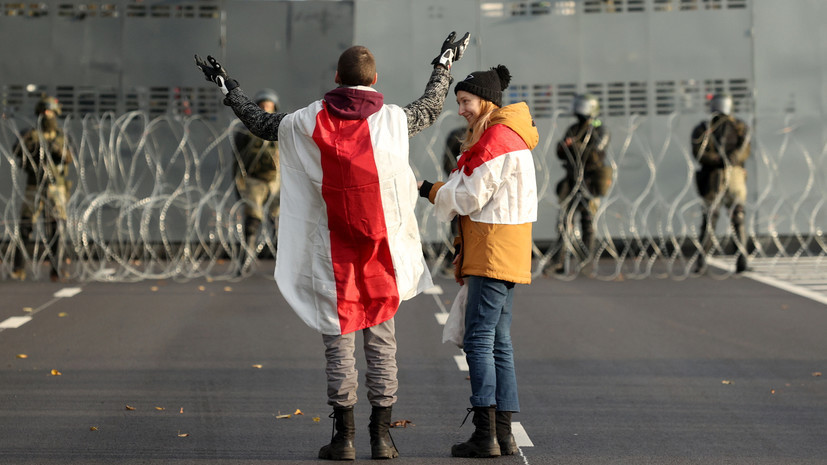Another unauthorized protest action took place in Minsk on Sunday, October 18.
Before the start of the action, buses with security forces and special equipment were pulled in different parts of the city, RIA Novosti reports.
Metal fences were set up near Independence Square in the center of Minsk, and police officers were on duty around the perimeter.
The head of the press service of the Minsk metro, Andrei Drob, announced the closure of several stations during the rally in order to ensure security.
After the end of the demonstrations, the metro stations resumed normal operation.
Also, problems with the work of the mobile Internet were recorded in the city.
Local telecom operators MTS and A1 explained that the Internet bandwidth was reduced "in accordance with the order of the authorized government agencies."
Police officers called on the demonstrators gathered on Partizansky Prospekt to disperse over the loudspeaker, recalling that the procession they were conducting was illegal, RIA Novosti reported.
Also, law enforcement officers warned the protesters about the possibility of using force and special equipment in case of disobeying the demands of the police.
RT correspondent Konstantin Pridybailo showed how Partizansky Avenue looked like, along which the demonstrators were walking.
After the protesters turned towards the Serebryanka district.
Some of the protesters walked towards the Minsk ring road past the capital's large factories.
Minsk police confirmed that arrests were carried out during the unsanctioned rally.
Roman Lashkevich, spokesman for the press service of the Municipal Department of Internal Affairs of the Minsk City Executive Committee, told Sputnik about this.
He did not name the exact number of those detained.
Protest action in Minsk
In addition, Lashkevich confirmed that the security forces fired several warning shots in the air with rubber bullets in the area of Partizansky Prospekt after the demonstrators started throwing stones at their vehicles.
“Several warning shots were fired with rubber bullets into the air after an aggressive part of the crowd started throwing stones at the transport of law enforcement officers,” Lashkevich said.
As the RIA Novosti correspondent reported, after the column of protesters approached the security forces cordon on Partizansky Prospekt, shots and clapping were heard.
He also said that the fighters on the spot detained one of the protesters, who came too close to them, but then did not take any action.
At the same time, Olga Chemodanova, an official representative of the Belarusian Ministry of Internal Affairs, said that on October 17, 58 people were detained for violating the legislation on mass events in the country.
In total, that day, according to her, 13 centers of socio-political activity of citizens were recorded in different localities of the country.
“The Interior Ministry notes a noticeable radicalization of content posted on the Internet,” she added.
On October 12, the republic’s first deputy minister of internal affairs, Gennady Kazakevich, announced that the protests in the republic had become "organized and extremely radical."
Kazakevich stressed that "it has nothing to do with a civil protest."
In turn, the prosecutor of the Belarusian capital Oleg Lavrukhin said that the damage to the budget and utilities of Minsk against the background of protests since the beginning of August amounted to about 900 thousand Belarusian rubles (about $ 350 thousand)
“Certainly, part of this amount will be covered, including by those actions that qualify as criminal offenses.
I must say that the issue of compensation for damage is under special control in the prosecutor's office in Minsk, ”he said.
Mass protests began in Belarus on the evening of August 9, after the preliminary results of the presidential elections held that day in the republic, in which Alexander Lukashenko won, became known.
Citizens, dissatisfied with the organization and the results of the vote, went to the rally, which escalated into riots and clashes with the police.
Protests in the country continue to this day, in most cases they were peaceful.

